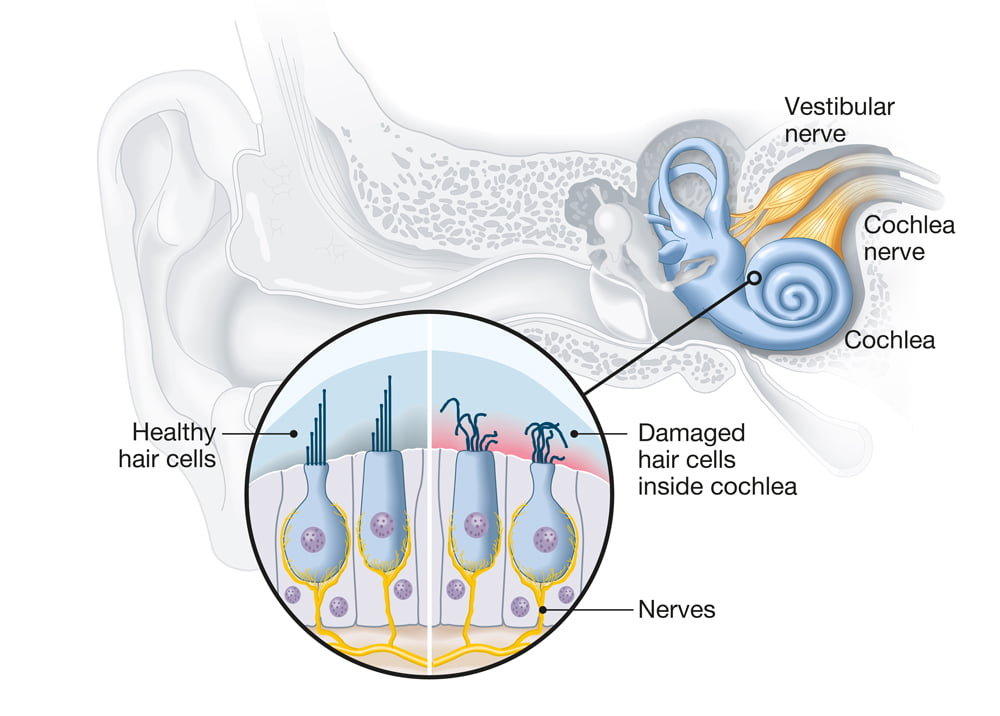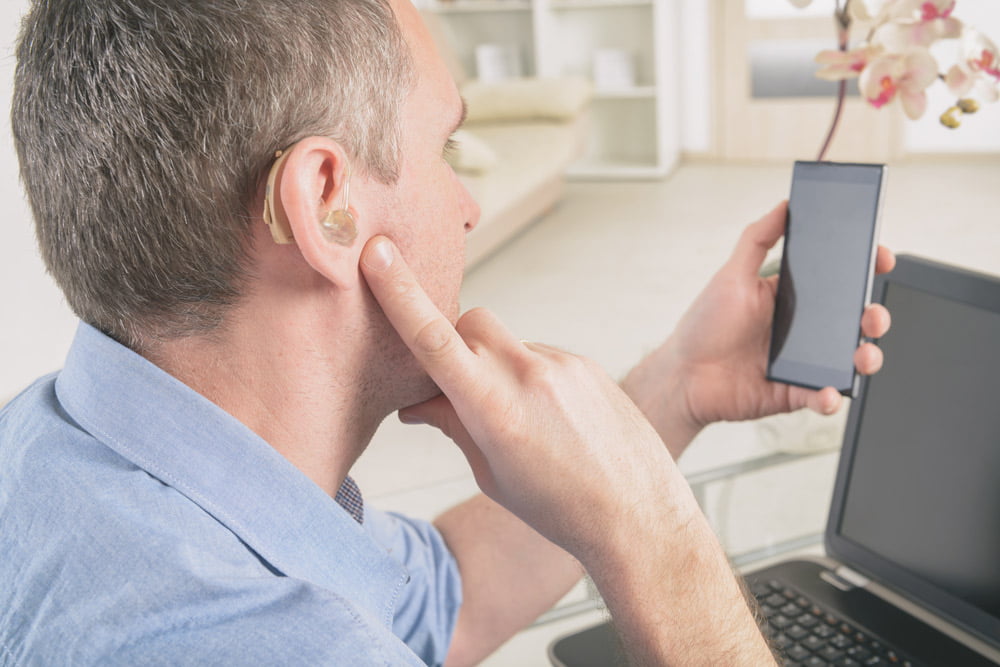Both tinnitus and hearing loss are common conditions. But did you know that there is a strong connection between the two? In fact, 80% of people with severe-profound hearing loss also have tinnitus. This raises the question: what is the relationship between these two conditions? In this blog post, we will explore the connection between tinnitus and hearing loss and what you can do if you are experiencing both.
What Is the Connection Between the Conditions?
Although the exact cause of tinnitus remains unclear, researchers have proposed several theories to explain its connection to hearing loss:
The Cochlear Damage Theory
The cochlear damage theory suggests that tinnitus is caused by damage to the hair cells in the cochlea, which detect sound waves and transmit them to the brain. This damage may result from exposure to loud noise, aging, or other factors that can cause hearing loss. The damaged hair cells may send abnormal signals to the brain, which can be perceived as tinnitus.

The Central Gain Theory
According to this theory, tinnitus is caused by changes in the way the brain processes sound information. When hearing loss occurs, the brain may increase its sensitivity to sound. Occurring in an attempt to compensate for the lost input, resulting in the perception of tinnitus. This increased sensitivity is known as ‘central gain’.
The Somatosensory System Theory
This hypothesis suggests that tinnitus can be caused by abnormalities in the nerves and receptors responsible for detecting touch, temperature, and pain in the head and neck region. These abnormalities may be caused by conditions such as temporomandibular joint disorder (TMJ) or cervical spine disorders. These conditions may cause the brain to perceive tinnitus as a result of increased activity in the somatosensory system.
The Neural Synchrony Theory
The neural synchrony theory proposes that tinnitus is the result of abnormal synchronous firing of neurons in the auditory system. This may be caused by a loss of inhibition in the auditory system, which can result from hearing loss or other factors. The abnormal firing is what can lead to the perception of tinnitus.

It’s important to note that these theories are not mutually exclusive, and there may be multiple factors that contribute to the development of tinnitus in individuals with hearing loss. Understanding these theories helps people manage symptoms and seek the right treatment.
Tinnitus as a Predecessor of Hearing Loss
Interestingly, some people with tinnitus may also have hearing issues without realising it. Since early hearing loss is often subtle, many remain unaware of its impact. Nevertheless, it can still harm the inner ear over time. As the hearing loss progresses, the tinnitus may become more severe.
For this reason, it is important to get your hearing checked if you notice any abnormal sounds such as ringing, buzzing, or hissing. A hearing test can identify any hearing loss and determine whether you need treatment. The earlier hearing loss is detected and treated, the better the outcome. In addition, managing hearing loss can also help alleviate tinnitus symptoms.
How Hearing Aids Can Help Alleviate Tinnitus
Hearing aids can provide significant relief for people with tinnitus and hearing loss.
By restoring auditory stimulation to the brain, they reduce the perception of internal sounds, making them less bothersome. Furthermore, hearing aids amplify background noises, which further stimulates the brain and can help shift the focus away from the tinnitus.Some hearing aids include tinnitus masking features, generating soothing sounds to suppress symptoms and provide relief.
In addition to reducing the perception of internal sounds, hearing aids can also reduce stress, which is a common trigger for tinnitus. Hearing aids enhance communication and reduce strain, easing the emotional burden of hearing loss.

If you are experiencing tinnitus and/or hearing loss, Hear4U can help. We provide comprehensive hearing tests that are completely free of charge. Our experienced hearing care professionals will work with you to determine the best treatment options to manage your symptoms and improve your quality of life. We also offer a wide range of high-quality hearing aids from top brands so you can find the perfect fit for your unique needs.
At Hear4U, our goal is to help you hear better and live better. Click the button below to schedule your free hearing test and take the first step towards managing your tinnitus and improving your hearing.






